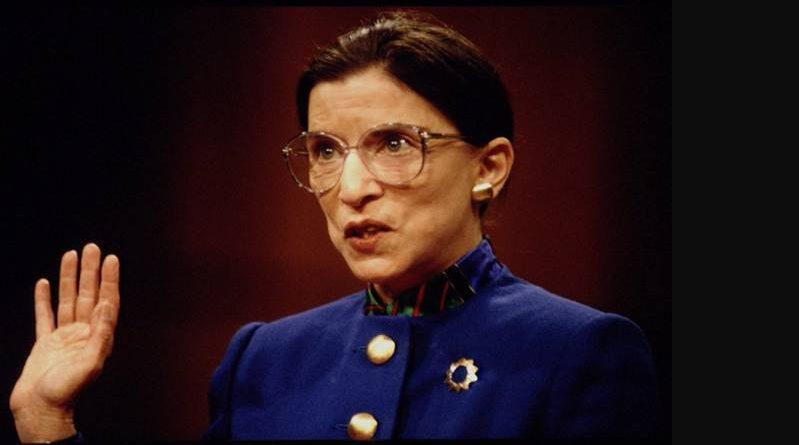Leadership Lessons from Ruth Bader Ginsburg (RBG) by Nneka Nwobi
“Fight for the things that you care about but do it in a way that will lead others to join you.” – Justice Ruth Bader Ginsburg (RBG)
Trust your week has gone well and look forward to a restful weekend.
This past week, the second female and first Jewish person to serve at the US Supreme Court, Justice Ruth Bader Ginsburg passed on at the age of 87 years. What a remarkable life she lived! I must confess I did not know much about her until she passed last week. As a result of all the news about her, I decided to learn more about her life.
One thing that stood out to me about RBG’s life was her fierce doggedness amid the many oppositions she faced in life. There are a few other things I learned (from my perspective), some of which I would like to share with you today:
- Rooted in faith – Although she was not a devout Jew, she had learned the tenets of her Jewish faith and the Hebrew Language. Of course, her parents must have been instrumental in ensuring she was guided by their family’s faith. I am also certain that her Jewish faith served as a moral compass for her life and likewise the major decisions she made in her life. This also underscores the important role of parents in guiding their children in developing their faith and belief system, which eventually serves as their life’s anchor.
- Family First – This was despite the fact she was a young ‘highflier’, having graduated at the top of her class at Cornell University. She subsequently got her 1st job at the Social Security Administration, and was demoted in her job because she was pregnant with her 1st child. Interestingly nowadays, some of our female folk will intentionally delay starting a family to advance their careers. From RBG’s life, a demotion for the sake of raising a family still did not stop her from reaching the pinnacle of her career. She eventually got admission to Harvard Law School, one of only nine women in her class. She later transferred to Cornell – a law school with less prestige than Harvard just to be with her husband who had been transferred to New York
. - A Spirit of Excellence – She got into academics in 1961, first as a research associate. She later co-authored a book with Anders Bruzelius on civil procedure in Sweden. She learned the
Swedish language to immerse herself in the Swedish culture, to help her see things through the Swedes’ lens. One of my first jobs was in Orebro, Sweden, after my 1st degree on an AIESEC internship. I know how difficult learning the Swedish language can be! Amazingly, it was during her extensive research at the Lund University, and time in Sweden that she was inspired to start what became most of her life’s work – gender equality. She had observed the changes in Sweden, where women were 20 to 25 percent of all law students; one of the judges whom Ginsburg observed for her research was eight months pregnant and still working!
- A woman of action – You know Chimaobi, it is one thing to be inspired, it is another thing to act. RBG acted after she received an inspiration of what she could be about. In 1970, she co-founded the Women’s Rights Law Reporter, the first law journal in the U.S. to focus exclusively on women’s rights. Between 1972 and 1980, she became the first tenured woman and co-authored the first law school casebook on sex discrimination. In 1972, RBG co-founded the Women’s Rights Project at the American Civil Liberties Union (ACLU). She argued six gender discrimination cases before the Supreme Court between 1973 and 1976, winning five of them!
- Strategic Focus – This for me was big. Rather than asking the Court to end all gender discrimination at once, RBG charted a strategic course, taking aim at specific discriminatory statutes and building on each successive victory. She chose plaintiffs carefully, at times picking male plaintiffs to demonstrate that gender discrimination was harmful to both men and women. When she was appointed to the Supreme court, it is told that her closest colleague was Justice Antonin Scalia, an ultra-conservative justice – polar opposites! I believe it was because of her ability to be strategic and focused, that she was able to develop such friendships and accomplish all she did in her lifetime to promote women and civil rights, amongst other achievements!
Question – What is your one take away from the lessons I have shared about RBG’s life?
P.S. – Click here to join my FREE teaching series on The Power and Principles of Vision (from a Biblical perspective).
P.P.S – I created a course to help you think through your current business and new business ideas to enable you rapidly come up with concrete high-level business plans. Click here to get the introductory special offer.
By Nneka Nwobi




